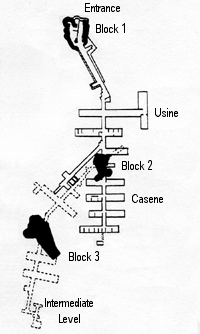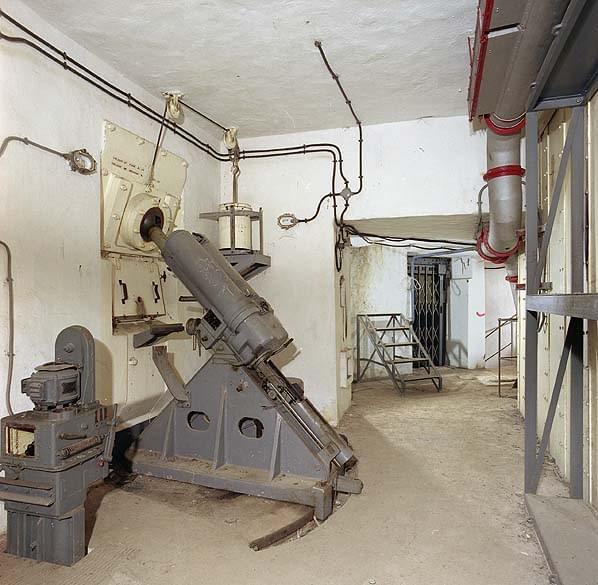proline wrote: ↑Sun Dec 15, 2019 9:26 pm
You're missing the forest for the trees here.
I despise this argument, because the fact is that the forest is made of trees. E
Most of which do not reveal the Italian Military to be well preforming, but also reveal that there tended to be reasons for this beyond sheer "Italian Units sucked" (though yeah, this was often a component it was rarely the early one).
And again, even the "forest" contradicts the magnitude you're attributing. The Italian military was not Spectacular. But it also didn't do things like lose Albania to Greece or fail to contribute notably to North Africa.
proline wrote: ↑Sun Dec 15, 2019 9:26 pm
The Italians had an enormous army and fought many battles in several theaters.
They had an enormous army compared to most Great Powers it was quite small (albeit usually more concentrated).
proline wrote: ↑Sun Dec 15, 2019 9:26 pm
By sheer luck, they should have one or two victories,
Try Dozens.
Especially if you actually factor in the proportion they made of Axis forces in several campaigns rather than attributing Magic Rommel or the Germans (since after all they had to contend with Italian commanders and troops, and several of the most disastrous defeats came when the Germans either didn't heed their concerns, as the fate of the Expeditionary Force in Russia showed).
Was the Italian military good? Not really, especially by the standards of the mid war or (God Forbid) late war. But it was hardly the completely impotent force you acted as.
proline wrote: ↑Sun Dec 15, 2019 9:26 pm
especially when you're calling slight delays, such as holding on to Tunisia an extra couple days past when the allies wanted to have it, as victories.
Cute, except that's not what I did.
The battle of Medenine was a Rommel planned an executed catastrophe that severely weakened the armored striking forces of Panzer Armee Afrika. At which point Rommel got recalled back to Europe and Messe became defacto Commander. And he managed to reorganize it so that the Western Allied advance against the Eastern Coast road (alone) was delayed a month. And that's not exhaustive. That included a significant reversal to Patton's tanks at El Guettar.
Which is one reason why Panzer Armee Afrika lasted nearly three months after Rommel withdrew, and a lot of *that* was due to the Western Allies sinking, shooting, and otherwise blowing up everything that flew, floated, or paddled towards Tunis and Sicily.
is this the world's best performance? No. But it's hardly "an extra couple of days."
You didn't see me mention East Africa at all in spite of similar battles (including the mauling of Gazelle Force) because ultimately, that is what it amounted to. Delaying the inevitable, and frankly not doing it very well (when one of the highlights of your campaign is Keren you're not doing very well).
proline wrote: ↑Sun Dec 15, 2019 9:26 pm
Nevertheless, the vast, vast majority of their actions involve them losing to numerically or technologically inferior enemies.
Except it wasn't a "vast, vast majority of their actions" and the fact that you couldn't even detail their actions correctly (including making such head bangingly, objective errors as claiming they lost Albania to the Greeks) further undercuts your credibility about being able to analyze.
proline wrote: ↑Sun Dec 15, 2019 9:26 pm
The Italians had very little heavy industry.
Absolutely Agreed.
proline wrote: ↑Sun Dec 15, 2019 9:26 pm
Few Italians had cars and their automotive production was near nothing.
Not a very good metric.
That was true, but it was also true that Italy was a Fascist nation preparing to turn itself into a Total War State like Ludendorff predicted, meaning that the civilian automotive center could FOAD as far as the Fascist Grand Council and Duce thought. Especially since- as you note- Italy didn't have much heavy industry so they were hellbent on using what they had to (try to) prepare for war.
Notably the US also almost completely shuttered civilian automotive production during the war in spite of being in a literally exponentially better situation in almost every way, and they were neither a totalitarian, half-agrarian nightmare run by Il Duce, not intending to start a war, and they had A LOOOT more heavy industry to throw around (probably more than all the Axis powers put together and then some).
proline wrote: ↑Sun Dec 15, 2019 9:26 pm
Their best tanks and fighters were produced by the dozens, not thousands or tens of thousands.
Correct.
The problem is, the same can be said of other nations, particularly the US and UK.
You don't many Super Pershings clogging up the Western Front or Meteors soaring over it. And even the IS family produced in the war didn't make it to the 10K mark.
That's kind of how technology works. You don't magically get rid of everything you're already using just because you invent something new, and a lot of times you can't even afford to stop making the old stuff.
Now sure, these machines were exponentially better than the best homegrown Italian designs. They were also created simultaneously or well after, by powers with (again) exponentially more heavy industry.
proline wrote: ↑Sun Dec 15, 2019 9:26 pm
They relied on coal imports from Germany. As a commander, you can't fix any of this.
Indeed, but you can greatly alleviate the pressure on the home front so that command can afford to produce and ship more modern $hit to you. And you can also make sure it's used much better.
proline wrote: ↑Sun Dec 15, 2019 9:26 pm
It would have taken a decade to industrialize Italy, and that's a decade without constant combat.
Agreed.
But being able to do things like kick the British off of Malta means that Italy can get a little further along the process than it historically did due to avoiding stuff like Death By Blenheim, Death by B-17, and so forth.
proline wrote: ↑Sun Dec 15, 2019 9:26 pm
As for poor military leadership, yeah, they had that.
Indeed.
proline wrote: ↑Sun Dec 15, 2019 9:26 pm
But more to the point there was minimal buy-in from the general public for fighting fascist wars.
I wish that were true, but it wasn't.
The interventions in Corfu, Ethiopia, Spain, and Albania were generally widely supported, and there was at least lukewarm
general support for intervening in the war in 1940..
The problem with public buy in started to skyrocket after 1940 and especially 1941, when it became clear that
A: Britain and its exiled allies weren't going to give up and make peace so Mussolini could strut around the peace table as someone "who had fought."
B: They were increasingly getting support from the USA and to a lesser extent USSR.
and
C: The unprecedented military disasters (in the case of East Africa, Compass, and so on, with only Caporetto itself being comparable) coupled with less glorious stalemates or minor victories could not be neatly brushed aside.
So like most of the Axis powers, (even Japan) defeat bred dissent and a loss of buy-in.
proline wrote: ↑Sun Dec 15, 2019 9:26 pm
Italy lost big in WW1
No, not really.
I'll be the first to rant at GREAT Length that Italy spent most of WWI as a very dysfunctional and bad military power and that Cadorna's name is used as an expletive for good reason.
But while the "Multiverse Battle of Isonzo" memes are cute, they aren't really true. Because the Italians won (for a certain variant of the term) about half of them, with the Habsburgs and Germans also spending their turns futilely bashing their heads in on the defensive line with comparable success and casualties to what Cadorna could show.
The reasons they're remembered as wall to wall defeats can mostly be summarized by the marginal gains that they got for what was achieved, Cadorna's own "winning personality" and lack of scruples towards his own people, and Caporetto. Which was unquestionably a major military disaster.
But also led to the Germans and Habsburgs bashing their heads against the next set of defensive lines (like Mont Grappa) and a successful counterattack, meaning that inside of a year the Italians and their Allies were back and blew away the remnants of their enemies at Veneto.
And that's ignoring the other fronts
Again, far from a great showing (almost as bad as WWI) but ultimately a victorious one. Just one they didn't.
proline wrote: ↑Sun Dec 15, 2019 9:26 pm
and the public was always going to resist the idea of another "total war" requiring 100% commitment from all citizens.
Some people will always resist that, even in the face of significantly better situations. So that isn't surprising in and of itself. Nor is it necessarily decisive if you can prevent said imperfect contributions from being hammered down by defeat.
proline wrote: ↑Sun Dec 15, 2019 9:26 pm
A few victories didn't change that, and a few more wouldn't have.
Depends on the nature of the victories, and particularly the ability to avoid crippling, debilitating defeats. Would it be a panacea? Of course not. Even Diaz's 10th hour reorganizations of the Italian Army and lots of Western aid wasn't a Panacea in WWI, and neither was German support here.
But it would help a great deal. Particularly in avoiding the collapse of the initial consensus supporting war in 1940.
proline wrote: ↑Sun Dec 15, 2019 9:26 pm
They were never going to get the support needed to produce the military output needed to field good armies.
In large part because of the limitations of both themselves (and their capabilities) and their allies. But while many of the limitations you mentioned would not be fixed just by a supergood commander, some of them would be. And a number would be significantly lessened.



















